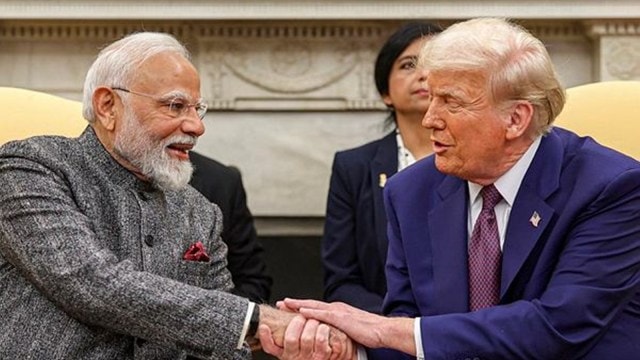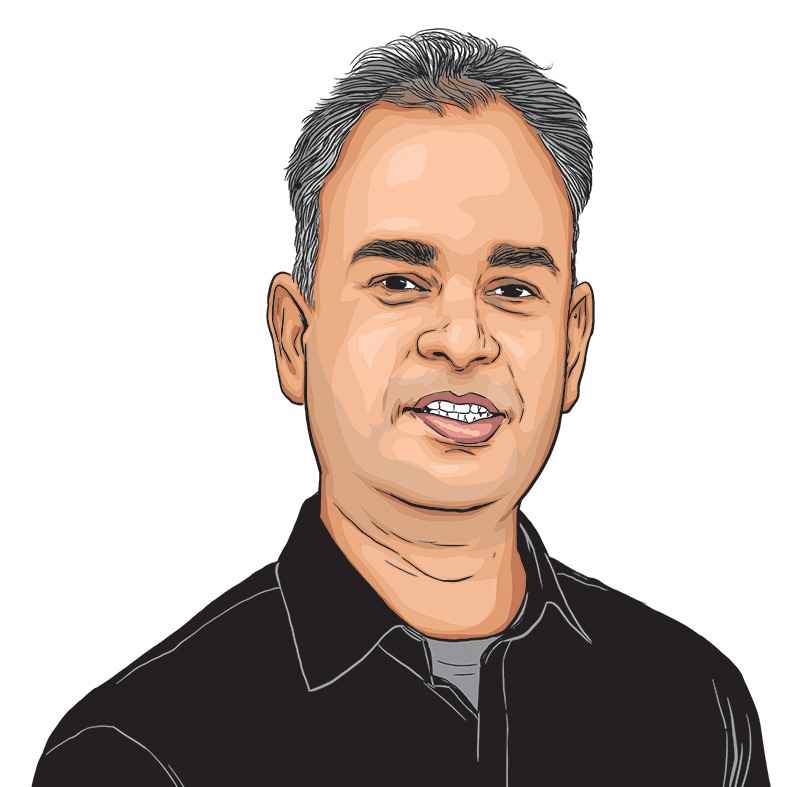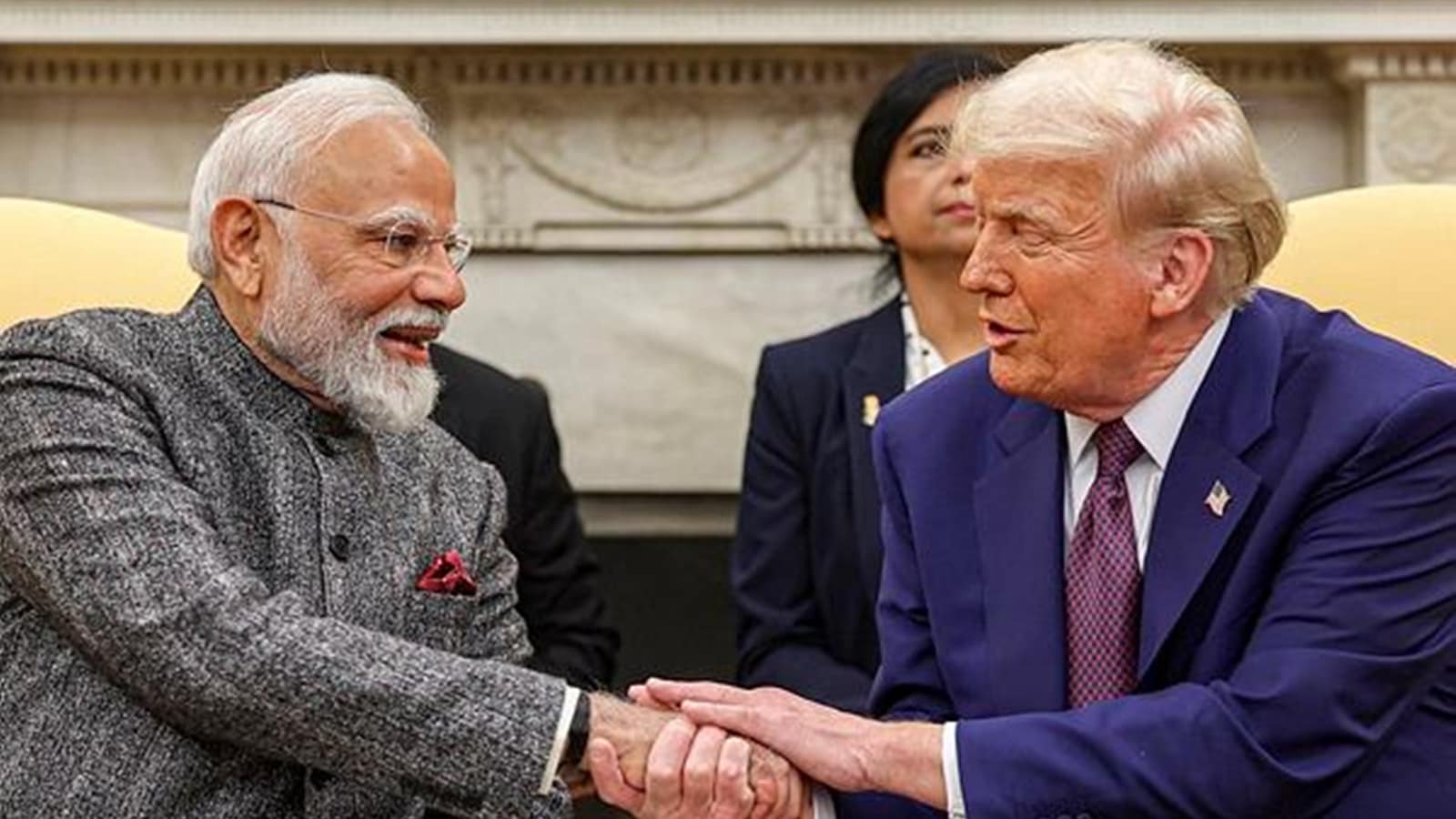Opinion by Rajan Kumar
The Trump administration realises the significance of India as a rising economy, a willing partner and a bulwark against China in the Indo-Pacific region. The Trump-Modi meet. It laid the groundwork for action in the coming years.


Feb 14, 2025 16:06 IST First published on: Feb 14, 2025 at 16:06 IST
Prime Minister Narendra Modi’s meeting with President Donald Trump concluded on an optimistic note, reiterating the convergence of interests on geopolitical issues, developing mechanisms to resolve differences over trade and tariffs and expanding the scope of security and defence ties. The meeting essentially attempted to reassess Trump’s stances on critical issues to recalibrate India’s strategy.
As expected, the Modi-Trump summit reinforced trust, reduced the risk of mismatched expectations, and created a roadmap for the next four years. As PM Modi stated, “Our talks will add significant momentum to the India-USA friendship.” They discussed various issues from defence and trade deals to nuclear technology, immigration, H-1B visas, space and scientific cooperation.
Story continues below this ad
The early bird catches the worm, and India’s diplomatic establishment deserves credit for setting up a timely meeting with President Trump. Modi was the fourth head of government to visit the White House, following the Israeli, Japanese and Jordanian leaders. The visit provided a clearer understanding of each state’s stance on contentious issues and halted the potential escalation of differences. Managing Trump’s impulsive behaviour remains a key challenge. However, the meeting has alleviated that concern.
Modi and Trump have a strong personal rapport, and their camaraderie was reflected in the meeting as they heaped praise on each other as great friends. Trump gifted Modi the book, Our Journey Together, which features photos from the “Howdy Modi” and “Namaste Trump” events organised in the previous term. They share views on global governance. In ideological terms, the two leaders prioritise nationalism over internationalism and populism over liberalism. They pursue a “nation first” policy in order to restore historical greatness. Further, their perceptions converge on China, Russia and Islamic terrorism.
With Trump 2.0, concerns were mounting in India as to whether Washington would continue to accord priority to India and how policies on trade, tariffs and immigration would impact the country. Trump’s “disruptive” multilateral policies and outlandish territorial claims over Greenland, Panama and Gaza had alarmed experts in India. However, the Modi government is unlikely to spar over issues that might derail ties. New Delhi’s priorities are strictly bilateral, leaving contentious multilateral matters to be discussed in larger forums. India is neither an ally like NATO states nor a rival like China. Therefore, it has enough bandwidth to operate within the middle space.
Story continues below this ad
Two urgent bilateral issues to be resolved were tariffs and illegal immigration. Trump does not distinguish between friend and foe on trade issues. In his earlier statements, Trump had accused India of being a “tariff king”. Just before he met with Modi, Trump shot of a warning about imposing “reciprocal tariffs” on countries with high duties. However, in a positive development, the two states agreed to continue negotiations on tariffs. Trump gave the assurance that the US would create “wonderful trade deals” for India. New Delhi has agreed to import more oil, natural gas and defence products from the US to create a trade balance. There is a trade deficit of about $35 billion. Further, the two countries set the goal of doubling the trade to $500 billion by 2030. They will also try to develop a secure India-Middle East Economic Corridor (IMEC) route to reach the US via Israel and Italy.
The two leaders reportedly discussed the issue of illegal immigration. India is the third-largest source of illegal migrants after Mexico and El Salvador. New Delhi is willing to accept its citizens living illegally in the US. Modi repeated this stance in the press conference, blaming “the ecosystem of human trafficking” that lures ordinary citizens. It is not clear what message was sent to the Trump administration regarding the method of their deportation in a military plane, chained and shackled. However, the Indian government will likely find ways to avoid such a situation by either making alternative arrangements for deportation or requesting the US to change its ways.
most read
The Trump administration realises the significance of India as a rising economy, a willing partner and a bulwark against China in the Indo-Pacific region. In Trump’s first term, the two states signed several foundational defence agreements. Extending the scope of security and defence cooperation, they have agreed to expedite cooperation in critical technologies, launching the Transforming the Relationship Utilising Strategic Technology (TRUST) initiative for government and private collaboration in defence, AI, semiconductors, quantum computing, space and biotechnology. Further, India has expressed willingness to reform laws to boost the entry of US nuclear technology. In an important development, the US has announced providing F-35 stealth fighter jets to India. This might be a game changer because India has depended mainly on Russian fighter aircraft. France and the US are new entrants in this field.
In a nutshell, the Modi-Trump meeting was a cordial reunion, an interaction rooted in the past but with implications for the future. The two states agreed to expand the scope of cooperation on areas of convergence and work gradually on contentious bilateral issues. It laid the groundwork for action in the coming years.
The writer teaches at the School of International Studies, JNU. Views are personal
© The Indian Express Pvt Ltd



